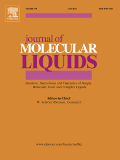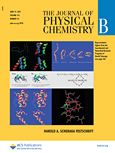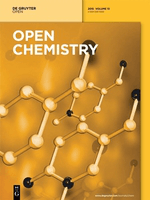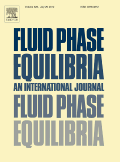
JOURNAL OF MOLECULAR LIQUIDS
metrics 2024
Innovating the Future of Molecular Liquid Studies
Introduction
JOURNAL OF MOLECULAR LIQUIDS, published by Elsevier, is a premier academic journal focused on the intricate nature of molecular liquids, spanning foundational to applied research. With an ISSN of 0167-7322 and an E-ISSN of 1873-3166, this journal has established its significance in various fields, achieving Q1 rankings across atomic and molecular physics, condensed matter physics, and materials chemistry, among others, as of 2023. The journal’s broad scope, covering studies from theoretical frameworks to experimental applications, serves as a vital platform for disseminating innovative research findings while advancing our understanding of molecular interactions and dynamics. With a strong position in Scopus rankings and high impact factors, it is a trusted resource for researchers, professionals, and students alike, seeking comprehensive insights into molecular liquids. As a journal that thrives on pioneering energy, the JOURNAL OF MOLECULAR LIQUIDS is essential for anyone wishing to remain at the forefront of research in this dynamic field.
Metrics 2024
 0.92
0.92 5.30
5.30 5.10
5.10 168
168Metrics History
Rank 2024
Scopus
IF (Web Of Science)
JCI (Web Of Science)
Quartile History
Similar Journals

DOKLADY PHYSICAL CHEMISTRY
Bridging Theory and Practice in Chemistry ResearchDOKLADY PHYSICAL CHEMISTRY is a prominent peer-reviewed journal published by MAIK NAUKA/INTERPERIODICA/SPRINGER, focusing on advancements and research in the field of Physical and Theoretical Chemistry. With the ISSN 0012-5016 and E-ISSN 1608-3121, this journal serves as a vital platform for researchers and practitioners to disseminate their findings and insights from 1996 to the present. Despite its current Q4 ranking in the 2023 category of Physical and Theoretical Chemistry, the journal has shown significant potential for visibility and engagement within the academic community, ranking #149 out of 189 in its respective field according to Scopus metrics, highlighting its dedicated readership. While the journal is not open access, it remains an essential resource for those seeking in-depth research articles, reviews, and commentary within this dynamic discipline. As the field continues to evolve, DOKLADY PHYSICAL CHEMISTRY plays a crucial role in fostering scientific dialogue and collaboration among researchers, professionals, and students worldwide.

JOURNAL OF PHYSICAL CHEMISTRY B
Unveiling Innovations in Materials ScienceJournal of Physical Chemistry B, published by the American Chemical Society, is a leading international platform dedicated to advancing our understanding of physical chemistry and its applications in various interdisciplinary fields. With an impressive 2023 Impact Factor, and categorized in Q1 for Physical and Theoretical Chemistry as well as Surfaces, Coatings and Films, this journal showcases cutting-edge research that contributes significantly to materials science, supporting the innovative development of new materials and technologies. The journal, established in 1997 and converging its years of publication to 2024, maintains rigorous peer-review standards and is accessible to a global audience, enabling the dissemination of pivotal research findings. Moreover, it is renowned for its comprehensive coverage in the realms of materials chemistry and miscellaneous medical applications, making it a vital resource for researchers, professionals, and students alike in their pursuit of excellence in scientific inquiry.

JOURNAL OF SOLUTION CHEMISTRY
Pioneering Insights into Molecular InterplayJournal of Solution Chemistry, published by Springer/Plenum Publishers, offers a vital platform for researchers and professionals engaged in the complex interplay of substances in solution, focusing on the interdisciplinary aspects of Biochemistry, Biophysics, Molecular Biology, and Physical and Theoretical Chemistry. Established in 1972 and traversing to 2024, this journal features extensive research articles that contribute significantly to the understanding of solution chemistry phenomena. Although it is categorized as Q4 in Biochemistry and Molecular Biology and Q3 in Biophysics and Physical and Theoretical Chemistry, the journal is set apart by its commitment to fostering innovative studies and methodologies within these domains. With an ISSN of 0095-9782 and an e-ISSN of 1572-8927, it remains accessible to a wide range of scholarly audiences despite the absence of open access options. As an essential resource for anyone invested in the foundational aspects of chemical interactions, the Journal of Solution Chemistry continues to shape the discourse in solution-based research, making it a critical asset for ongoing academic pursuits.

Open Chemistry
Exploring New Horizons in Chemical ResearchOpen Chemistry, published by DE GRUYTER POLAND SP Z O O, is a distinguished peer-reviewed journal that has been serving the global chemistry community since its inception. With an ISSN of 2391-5420 and an E-ISSN also of 2391-5420, this open-access journal has been accessible to researchers and practitioners alike since 2015, ensuring a wide dissemination of high-quality research findings. Located in Germany, specifically at BOGUMILA ZUGA 32A STR, 01-811 WARSAW, MAZOVIA, POLAND, Open Chemistry aims to publish innovative research across various chemical disciplines, with special attention to miscellaneous chemistry and materials chemistry. It is currently ranked in the Q3 category for both fields as of 2023, reflecting its solid standing within the academic community, with specific ranks of 187/408 in General Chemistry and 153/317 in Materials Chemistry, corresponding to respective percentiles of 54 and 51. Open Chemistry not only enhances the accessibility of cutting-edge research but also serves as a vital resource for students, professionals, and scholars seeking to advance their knowledge in the rapidly evolving landscape of chemical sciences.

Moroccan Journal of Chemistry
Bridging Local Insights with Global Chemistry Research.Moroccan Journal of Chemistry, published by the University Mohammed Premier Oujda, serves as a pivotal platform for researchers and professionals in the field of chemistry, particularly focusing on diverse and emerging areas within the discipline. Established in 2018, this open-access journal facilitates widespread dissemination of scholarly articles, ensuring that cutting-edge research reaches a global audience. With an ISSN of 2351-812X and categorized in the Q3 quartile for miscellaneous chemistry in 2023, the journal maintains rigorous peer-review standards while fostering an inclusive environment for scientific dialogue. Located in Morocco, it aims to bridge local and international research communities, contributing to the advancement of knowledge in chemistry. As it continues to grow, the Moroccan Journal of Chemistry remains an essential resource for students, educators, and professionals eager to stay abreast of the latest developments in the field.

JOURNAL OF CHEMICAL SCIENCES
Fostering Collaboration in the World of Chemical SciencesThe JOURNAL OF CHEMICAL SCIENCES, published by the Indian Academy of Sciences, is a premier academic journal that serves the global community of chemists and researchers. With an ISSN of 0974-3626 and an E-ISSN of 0973-7103, this journal is pivotal in disseminating high-quality research across diverse areas of chemical sciences. As of 2023, it holds a respectable Q3 ranking in the field of Chemistry (miscellaneous) and ranks #215 out of 408 in General Chemistry according to Scopus, reflecting its commitment to advancing the discipline. Operating in an open-access format, the journal ensures that research findings are readily accessible to a broader audience, fostering collaboration and innovation. Established in 1980 and continuing to evolve, the journal's scope encompasses fundamental and applied chemistry, and aims to bridge gaps between theoretical and practical applications. With a mission to support the scientific community, the JOURNAL OF CHEMICAL SCIENCES is an essential resource for researchers, professionals, and students alike, providing a platform for the exchange of groundbreaking ideas and discoveries.

RUSSIAN JOURNAL OF INORGANIC CHEMISTRY
Championing Excellence in Chemical ResearchThe Russian Journal of Inorganic Chemistry is a distinguished publication that delves into the fundamental and applied aspects of inorganic chemistry. Published by MAIK Nauka/Interperiodica/Springer, this journal has established itself as a vital resource for researchers, professionals, and students alike, contributing significantly to the fields of Inorganic Chemistry, Materials Science, and Physical and Theoretical Chemistry. With an ISSN of 0036-0236 and an E-ISSN of 1531-8613, the journal is indexed for easy access and citation. Though the journal currently operates under a subscription model, its commitment to disseminating high-quality research and fostering scientific discourse remains steadfast. The journal has been maintaining a consistent record since its inception, and its positioning in the Q3 quartile across various chemistry categories in 2023 underscores its relevance in the academic community. As it continues through its converged years from 1996 to 2024, the Russian Journal of Inorganic Chemistry plays a pivotal role in enhancing the understanding and advancement of inorganic chemistry, making it an indispensable tool for anyone engaged in this dynamic field.

FLUID PHASE EQUILIBRIA
Fostering Innovation in Physical ChemistryFLUID PHASE EQUILIBRIA, published by Elsevier, stands as a pivotal platform within the realm of chemical engineering and physical chemistry since its inception in 1977. With an ISSN of 0378-3812 and an E-ISSN of 1879-0224, this esteemed journal features a diverse array of research dedicated to the principles and applications of phase equilibria in fluid systems. Ranked within the top quartiles (Q2) across multiple categories, including Chemical Engineering and Physical and Theoretical Chemistry, it highlights its significance with Scopus ranks that place it prominently in comparison to its peers. Although it does not currently offer open access, the journal's extensive content contributes significantly to scholarly discourse, making it an invaluable resource for researchers, professionals, and students alike. Operating from Amsterdam, Netherlands, FLUID PHASE EQUILIBRIA serves as a central hub for advancing knowledge and fostering collaboration in fluid phase studies, promising insights that span theoretical analyses to practical implementations.

Physical Chemistry Research
Unveiling new methodologies in fluid flow and transfer processes.Physical Chemistry Research, published by the Iranian Chemical Society, is an esteemed academic journal dedicated to advancing knowledge within the fields of *Fluid Flow and Transfer Processes*, *Physical and Theoretical Chemistry*, and *Statistical and Nonlinear Physics*. Since its inception in 2013, the journal has established a crucial platform for researchers, professionals, and students to share innovative findings and methodologies, enhancing collaboration and knowledge dissemination in the physical chemistry community. With impactful contributions recognized in Quartile 3 and Quartile 4 classifications across various categories, the journal is positioned to cultivate emerging research trends as it continues to converge through 2024. Researchers can benefit from diverse perspectives on crucial phenomena in physical chemistry, as the journal is indexed in prominent databases, further increasing accessibility and visibility. The *open access* policy ensures that cutting-edge research remains available to a broad audience, promoting the growth of the discipline globally.

Acta Crystallographica Section B-Structural Science Crystal Engineering and Materials
Advancing the frontiers of structural science and materials innovation.Acta Crystallographica Section B: Structural Science, Crystal Engineering and Materials, published by the International Union of Crystallography, stands as a pivotal resource for researchers and professionals in the fields of materials science, crystal engineering, and structural biology. With an e-ISSN of 2052-5206, this journal is recognized for its contributions to advancing knowledge on the structural aspects of materials, drawing significant interest from the Q2 category in several disciplines, including Atomic and Molecular Physics and Materials Chemistry. As the field evolves through innovative research approaches and methodologies, the journal actively covers developments within the scope of materials synthesis, characterization, and application in various sectors including medicine and electronics. Though not an open-access journal, it is entangled in the scientific discourse, ensuring that key studies are accessible to academic institutions and professionals globally. With a commitment to excellence, its impact across multiple quartile rankings signifies its influence and importance for scholars eager to contribute to cutting-edge research.